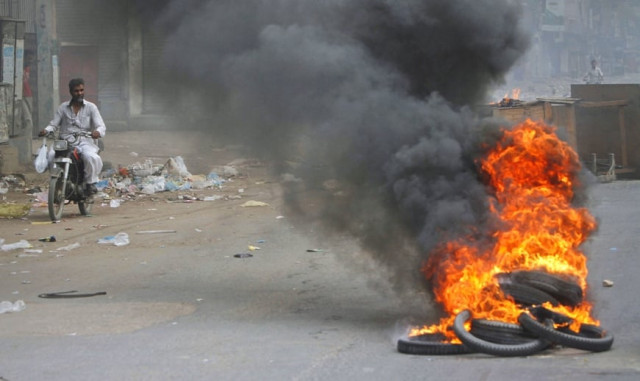Tyre burning, pyrolysis plants banned across Sindh
Decision aimed at protecting public health

The Sindh government has imposed a complete ban on tyre burning and the operation of pyrolysis plants across the province in a move aimed at curbing environmental pollution and protecting public health.
The decision was taken during a meeting of the provincial cabinet with Chief Minister Murad Ali Shah in the chair. The cabinet approved immediate action against all tyre-burning operations and substandard pyrolysis units, which have been identified as a major source of hazardous emissions.
Zubair Ahmed Channa, Secretary for Environment, Climate Change and Coastal Development Sindh, confirmed the development, saying that a report submitted by the Sindh Environmental Protection Agency (SEPA) had revealed alarming findings regarding the environmental and health hazards caused by these practices.
"Smoke and toxic chemicals released through tyre burning and unregulated pyrolysis processes are severely contaminating the air, soil, and water," Channa said. "This pollution has led to a rise in respiratory, cardiovascular, and neurological illnesses, particularly in urban centres like Karachi, where air quality has reached dangerous levels."
He added that the provincial government had ordered the immediate shutdown of all such plants operating without proper environmental safeguards.
To enforce this decision, the Sindh government has drafted new regulations titled the Sindh Environmental Protection Agency (Prohibition of Use of Substandard Fuel/Tires) Rules, 2025. Under these proposed rules, there will be a comprehensive ban on the use, manufacturing, and sale of substandard fuels, including tyre oil and other unsafe by-products.
The draft rules mandate that all fuel-processing and recycling plants must obtain proper licensing, install emission control systems, and meet strict environmental standards. Violators may face penalties including heavy fines, seizure of equipment, and permanent closure of facilities.
Secretary Channa stressed that the government was well within its mandate under the Sindh Environmental Protection Act, 2014 to implement such measures. "This is a significant and practical step toward sustainable development, cleaner air, and a healthier environment for the people of Sindh," he added.





















COMMENTS
Comments are moderated and generally will be posted if they are on-topic and not abusive.
For more information, please see our Comments FAQ